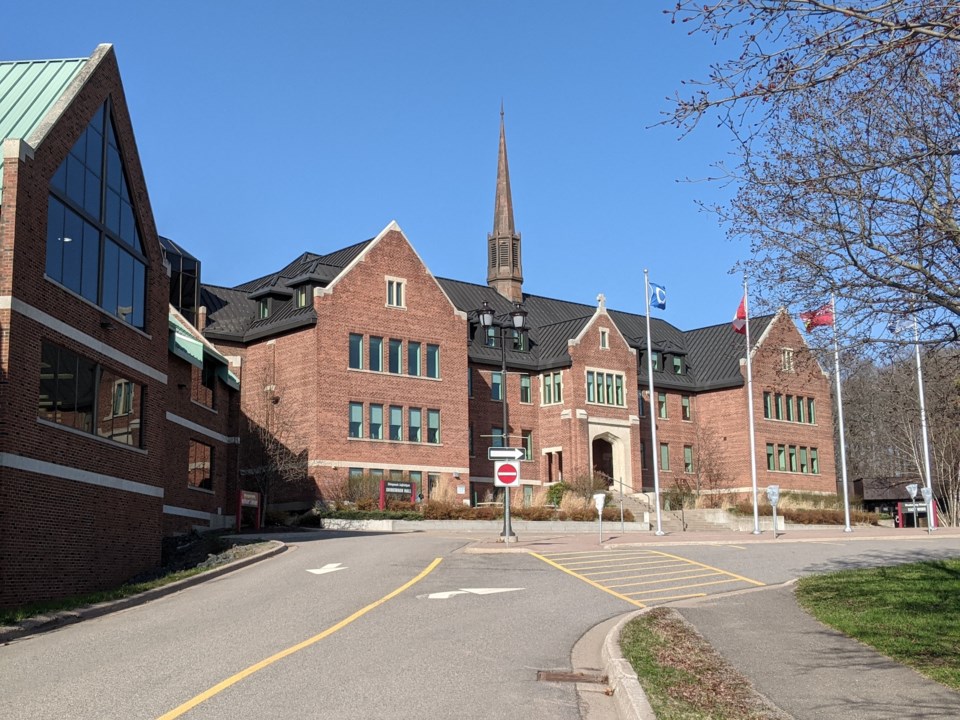Algoma University and Sault College are expanding their partnership with a new academic pathway that allows students to transfer from the college to the university for a number of programs.
In a news release issued today, the university said the new “2+1” and “2+2” academic pathway will allow eligible students who complete the college’s two-year computer programming diploma program to transfer and be admitted into year three of Algoma University’s Bachelor of Computer Science degree programs (both three and four-year programs). This new agreement is available to Sault College students beginning studies in the Computer Programming diploma program in fall 2021 and beyond.
The full release is as follows:
Sault College and Algoma University are expanding their long-standing partnership with a new “2+1” and “2+2” academic pathway that supports enhanced student mobility between the College and the University.
Under the agreement, eligible students who complete Sault College’s two-year computer programming diploma program will be eligible for transfer and admission into year three of Algoma University’s Bachelor of Computer Science degree programs [both three and four-year programs]. This new agreement is available to Sault College students beginning studies in the Computer Programming diploma program in fall 2021 and beyond.
This pathway agreement between Sault Ste. Marie’s two post-secondary institutions build on the number of enhanced transfer pathways available to students who wish to complete a Sault College diploma then seamlessly transition to Algoma University to complete a degree in a related subject area. These agreements include but are not limited to: Business, Business/Accounting, Environmental Science and the General Arts and Science diploma programs. This new agreement further streamlines and harmonizes the student experience so that credits are directly acknowledged and accepted.
Pathway details include:
Sault College Diploma Program (two year)
Computer Programming
Algoma University Degree Program (one or two year)
Three-year Bachelor of Computer Science (two + one) or four-year Bachelor of Computer Science (two + two)
The new pathway agreement aligns with both institutions’ strategic priorities to expand access to post-secondary education and enhance the overall educational experience for students. Both institutions are committed to working with regional partners and all levels of government to expand post-secondary access, stimulate socio-economic growth, and encourage the development needed to support current and future workforce and leadership capacity needs in Ontario.
To learn more about all pathway agreements between Sault College and Algoma University, click here.
“As leaders in our community, Sault College and Algoma University provide exceptional educational opportunities to learners from our area and beyond and this agreement further reinforces this joint commitment. Through this unique partnership, we’re supporting ongoing learning and providing diversity in options and enhanced accessibility to quality education,” said Dr. Ron Common, President, Sault College. “Together we are providing another opportunity for an enriched learning experience that encompasses the strengths of both post-secondary institutions and offers learners more choices in their academic pursuits providing them with a solid foundation in their career paths. Sault College is proud to expand its partnership with Algoma University and looks forward to its continued collaboration and finding innovative ways to support our learners and community as a whole,” he added.
“The growing partnership that continues to develop between Algoma University and Sault College is good for our community; together we are focused on student success, meeting the talent needs of our community and ensuring that we are providing strong pathways that lead to good jobs for students," shared Asima Vezina, President and Vice-Chancellor, Algoma University. "Providing more in-demand programming options for post-secondary education is critical, especially in Northern Ontario. We continue looking at new ways to collaborate together and we continue to be at the forefront of innovation, research and higher education attainment in our community.”
